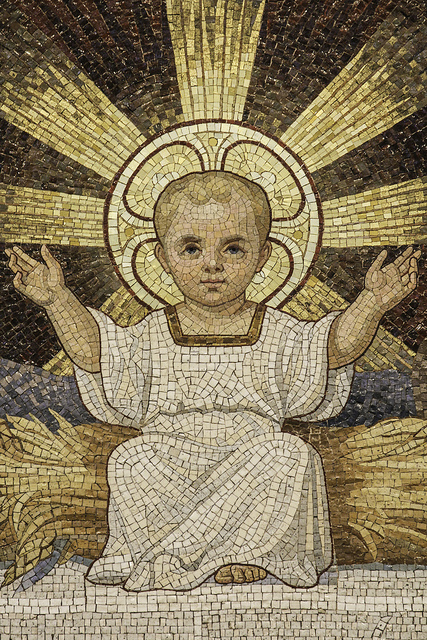Well, that was quick!
Zero to twelve in two days. For those persons in the pews, the first Sunday after Christmas may seem out of place, strange. Wait a minute. Jesus was just born two days ago — and now he’s twelve? And while preachers know that this is the only story recorded in the Gospels of an adolescent Jesus, the only story in the Gospels of anything about Jesus between his birth and his public ministry, it may be the case that not all congregants are privy to the same information. So, why point it out? Not to scold Mary and Joseph for pathetic parenting, not to point out that Jesus was just like any other twelve- year-old boy (but of course, I’d like to believe he was), not to criticize the Gospels for being bad biographies. But because it provides a unique glimpse into what we so desperately want to believe about Jesus — that Jesus was really a human being.
While we may like the idea of Christmas, we do not always want to embrace fully its truth. The humanity of God in Jesus continues to be met with rejection. Think about it. This could be the Sunday to admit our discomfort with an all too human God. The incarnation has a tendency to rub us the wrong way, to challenge our views of God because we tend to gravitate toward a god of power not a god of solidarity; a god of visible strength, not a god who exhibits strength in weakness; an omnipotent, omnipresent, omniscient god, not a vulnerable, changing, and reactionary god.
Thus, this very important story we hear in Luke. It’s not just that Jesus is just like us — Jesus was us.
The challenge of Christmas to Easter in the liturgical year is we are prone to forget that it took Jesus thirty years before he preached his sermon in Nazareth (Luke 4:16-21), before he changed water into wine (John 2:1-11), before he climbed up a mountain for the Sermon on the Mount (Matthew 5-7), before he started casting out demons (Mark 1:21-28).
Think about it. What kind of life did Jesus lead until then? The literary gaps are exciting and intoxicating. Filling in the blanks of Jesus’ life between his birth and the first act of his public ministry is both enticing and frightening — enticing, in that we can imagine all kinds of situations and circumstances of childhood, frightening for the same reason. This may be a moment for re-contextualizing the biblical story — who was Jesus’ first grade teacher? Did he go to senior prom? What was his major in college? We resist these kinds of questions as sacrilege. Yet, at the same time, if we are honest, we are intrigued by them. I think deep down we want to believe that Jesus experienced all of what we did and what we do and who we are. Yet, we also need him to be other — our Messiah, our Savior, our God. This is the promise and perplexity of our confession of Jesus as fully human and fully divine.
Christmas preaching cannot be about making the confession of Jesus’ birth an easy one. We cannot focus on Jesus as a baby and then fast forward to Jesus as Lord as if nothing happened in between. You might spend some time imagining such circumstances — and then name the discomfort in doing so. We want to…but we don’t. We want to believe that Jesus was human, like us, experienced life like us, felt things like us, yet at the same time our nervousness prevails — what then does this say about Jesus’ divinity? Can he really do what we need him to do and be as God incarnate at the same time? When and how and why does the divine take over the human and vice versa for how we imagine God to be in our lives?
This unique account of a preteen Jesus, then, is critical. It forces us to engage in interpretive biblical imagination, and then watch and reflect on the moments that bring to the surface our anxiety about the meaning of Christmas. We like Christmas — we like it a lot. But when we start plumbing the depths of what it really means, we run up against theological resistance. Maybe this is the sermon to name our uneasiness with the incarnation — and that that’s okay. The promise of the incarnation is not something to be understood, grasped in full, fathomed. Yet, we dearly want to be able to comprehend its claims. This is a sermon about imaginative interpretation, but also imaginative theology — not for the sake of deconstructing our theological premises, but for the sake of our need for constant and consistent reflection on and discernment about who God really is for us, who we believe God to be, and what matters for us when it comes to God’s activity in our lives. Where do you locate your theological imagination? In the incarnation? In the cross? In the resurrection? In the ascension? In Jesus’ ministry for justice?
Christmas is just this kind of moment — a moment for a theological recheck, recalibration, reassessment — and it should be. That every December 25 we are nudged into such reflection is a gift. And, if we walk away from this Sunday having different thoughts about God, well, that’s exactly what the birth of Jesus, the birth of God is all about.
Merry Christmas indeed.
Karoline

